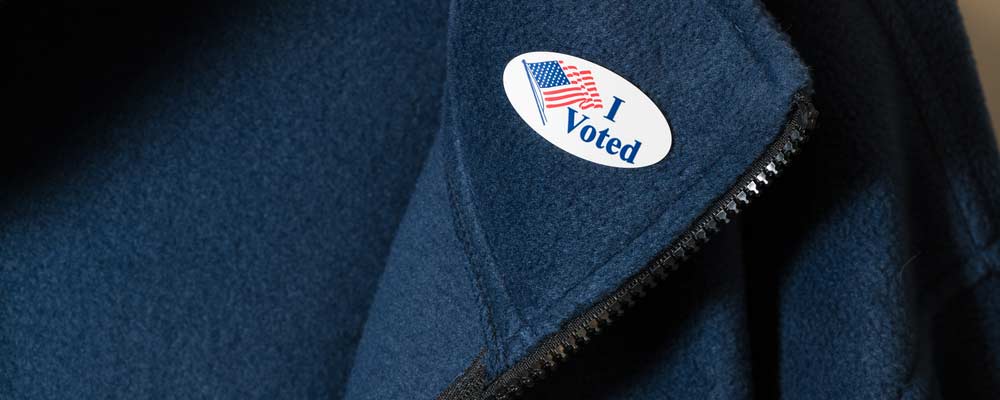Tuesday is the 2018 midterm, national Election Day in the United States.
You might assume everyone knows that, but your assumption may be wrong. Half of those eligible to vote will not do so.
According to the impressive U.S. Elections Project at the University of Florida, on this Election Day an estimated 235.7 million U.S. citizens are eligible to vote. In the last midterm election in 2014, only 36.7% of those eligible voted.
Experts are predicting 45% to 50% of eligible voters will cast a ballot, a level unseen since 1970, when 47% of voters turned out, or 1966 when a record 49% voted in the midterm. In recent elections, about 60% of the eligible vote in presidential elections, and about 40% in midterms.
Aaron Ross Powell, an attorney and director of Libertarianism.org, a project of the respected libertarian Cato Institute, argues for a number of reasons that casting a vote is an immoral act, mainly because “the democratic process can’t transform immoral acts into moral ones. Therefore, participating in elections entails signing your name to countless misdeeds.”
I first voted in 1958 as soon as I was eligible at 21 years old. I have never missed voting.
I engaged in my latest “immoral act” of voting last week under the early voting system available in my state. After having done detailed research, I still labored for 15 minutes marking my paper ballot for 11 candidates and 33 questions.
This time I voted in the forlorn hope that Thomas Jefferson was right when he assured us: “Should things go wrong at any time, the people will set them to rights by the peaceable exercise of their elective rights.”
I pray that he was right.
Should You Vote?
How should you vote in the 2018 midterm elections?
I gave you my advice about this election in June when I suggested: “Throw the bums out.” Tuesday night, when the results come in, it is highly doubtful my recommendation will be followed.
That’s because the American so-called “two party” electoral system is rigged to ensure victory for most incumbent Democrats and Republicans. In the 2016 election, of 29 U.S senators up for re-election, 27 won; that’s over 93%. Members of the House of Representatives did better, with 380 of 393 (or almost 97%) re-elected.
That outcome contradicts the generally poor public attitude about Congress.
In the latest Gallup poll (October 1-10), 73% indicated disapproval of “the way Congress is handling its job,” with overwhelming disappointment expressed across partisan lines. The reason may be because we don’t have a two-party system; rather we are inflicted with a one-party system, with two warring factions fighting for power with little regard for principles.
The Voting Illusion
Some argue that voting is irrational, an exercise in futility because one vote doesn’t matter. It’s statistical meaninglessness because in most cases it has little chance of affecting the outcome.
Anti-voting libertarians argue we should not vote at all, because doing so strengthens the illegitimate power of the state.
If you vote because you hope to promote good policy, that assumes you actually know what good policy is. If you don’t know, logic suggests you should stay home on Election Day.
Albert Jay Nock, one of the great unsung American philosophers, despaired because he believed most people are always comfortable in their condition of servitude to the state, unable even to realize it. Nock suggested the periodic fanfare of elections simply satisfies the mass desire to participate in democracy, giving us the illusion of choice.
You may know that I am fond of quoting my great fellow Marylander H.L. Mencken, the Sage of Baltimore, who shared Nock’s view.
I leave you with one of Mencken’s more trenchant observations appropriate for this Election Day: “Democracy is the theory that the common people know what they want, and deserve to get it good and hard.”
Yours for liberty,
Bob Bauman, JD
Legal Counsel, Banyan Hill Publishing
